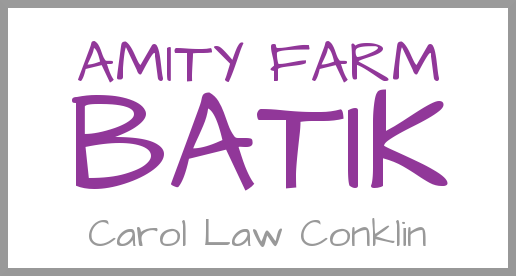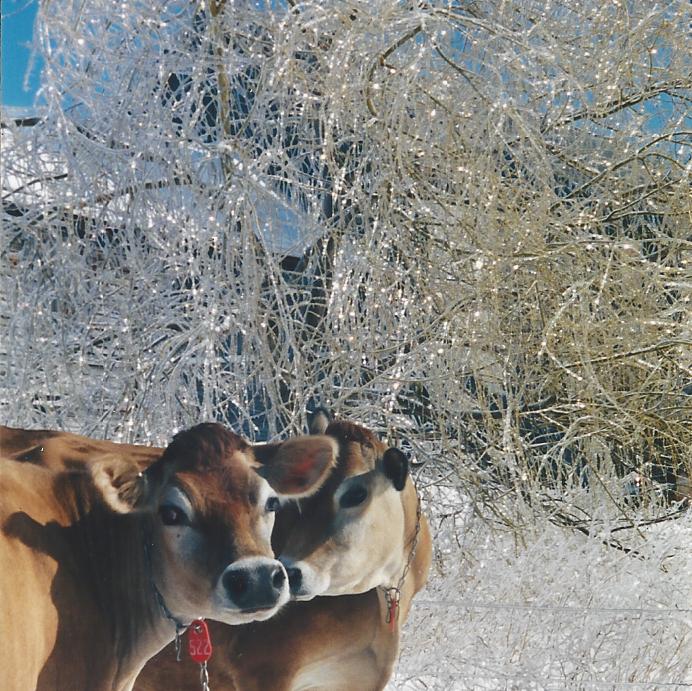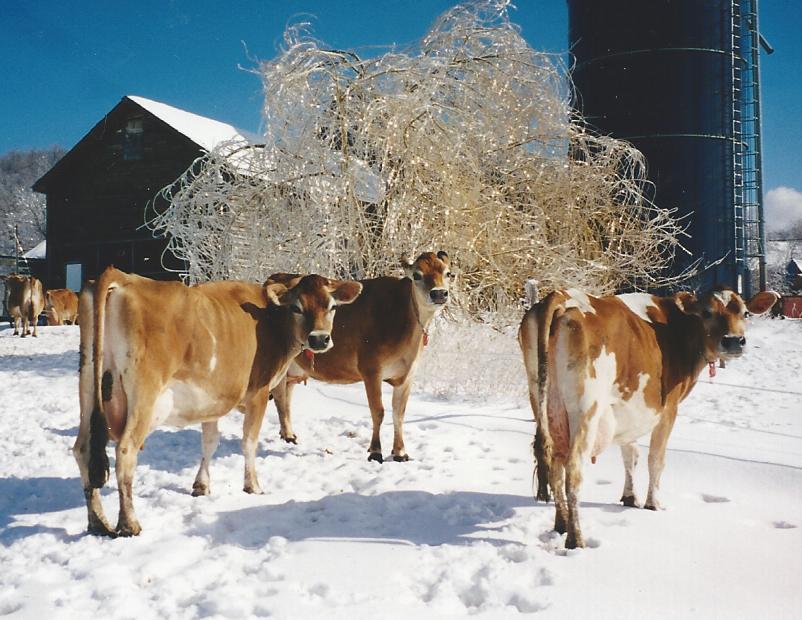As I pounded through the thick ice on top of Steppin’s ( (My old best cow that we have to this day) round water tub in the minus 20 degree weather last weekend, I could not help but think back to our first winter on our farm. Today I chipped through much of the ice and threw away some of the chips before adding the pails of hot water to not only melt some ice, but make it warmer and better for her to drink. Livestock will take less energy drinking warm water and be able to use that to keep warm rather than having to drink ice cold.
There was no such luxury for our dry cow and heifer group back when we first got to the farm. They had a big open shed with a feed bunk to get out of the snow and wind and a hay pack off and away to loaf on up away from the snow. Back then in this 25 degree below weather, the water in the back of the barn was frozen solid. No way would water flow to that tub they had been drinking from. Down to the brook I strode with a splitting maul propped over my back. It took at least a dozen hard whacks on the thick ice of the brook to get a small hole through to the freezing water that rushed on below the ice. Finally a section a little over a foot wide square was created near the brook’s edge so they all could drink. Despite the freezing coldness of the water, they were grateful and took turns drinking before running back up to their shed to get the fresh silage. The silage was also slightly frozen, not as good as warm steaming feed that they had had other days. The heifers would not grow much that day!
Inside there was a struggle going on to thaw the water bowls. We used hot water, as a torch is quite dangerous in a barn with flammable hay and bedding. Dick pounded hard with a sledge hammer on the paddles of the gutter to be sure they were free to move the manure out of the barn and into the not so trusty manure spreader. The spreader had to be pounded on too and it was important all parts were free and not frozen before it could be loaded. Any frozen down section could cause it to break and how much fun would it be fixing a broken spreader at 25 below? Three times the old gutter chain slipped off the sprocket and after much swearing it was put back in place, only to slip off again and again. Eventually all the manure was transported out of the barn.
The cows were fed hay and then the corn silage was wheelbarrowed around the barn. Happy cows ate, pooped, were cleaned and bedded and then lay down making a contented exhale sound. The pleasant sound of cows chewing their cud filled the air. Stepping out of the barn, the sky was already turning pink. The cold weather sunsets are spectacular. It was time to get a quick lunch at 3 PM before the chores and evening milking would begin again. The farm ritual continued.


